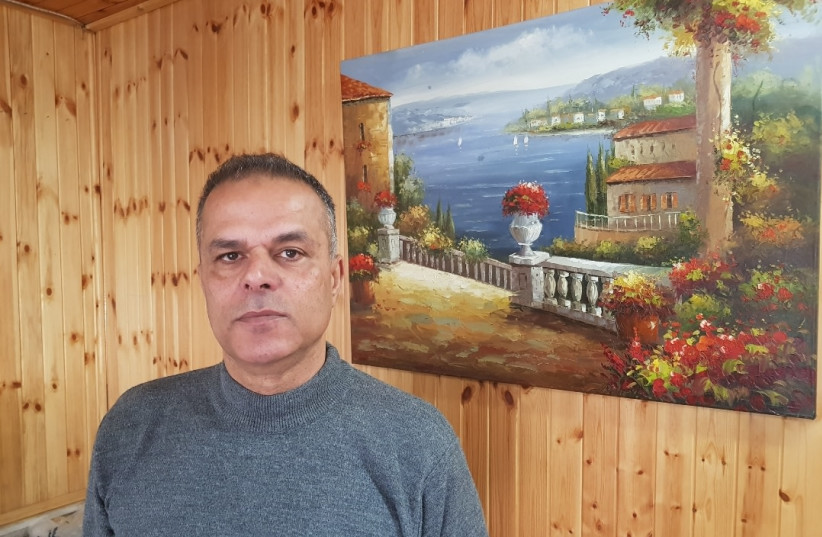Palestinian Authority security forces are not headed toward an armed confrontation with the IDF, in spite of the involvement of some PA officers in recent attacks in the West Bank, a former senior Palestinian intelligence officer said on Sunday.
Fahmi Shabaneh, former PA General Intelligence Force commander of the Hebron area, said the attacks that were carried out by a number of individuals belonging to various Palestinian security services did not reflect the stance of the Palestinian leadership.
“The Palestinian Authority and its security forces are not interested in a military showdown with Israel,” Shabaneh said in an interview with The Jerusalem Post.
No end to Israel-Palestinian Authority security coordination
The PA was also unlikely to halt security coordination with Israel in light of the latest tensions and violence, especially in the northern West Bank, Shabaneh said.
“The Palestinian leadership considers the security coordination to be sacred,” he said, sarcastically echoing Abbas’s 2014 controversial statement that the security coordination with Israel is “sacred” and will continue. “That’s why they won’t stop the security coordination with Israel.”

Shabaneh pointed out that most of Abbas’s senior aides support the continuation of the security coordination.
“The recent attacks were carried out by individuals who don’t represent the policies of the Palestinian leadership and the security forces,” he said.
Has the Palestinian Authority lost control of the West Bank?
According to Shabaneh, the PA has already lost control of the situation in most parts of the West Bank.
“The Palestinian Authority is strong only against an individual here and an individual there,” he remarked. “But when it comes to the general situation, the Palestinian Authority has undoubtedly lost control. Take, for example, Hebron, which has always been ruled by clans. There are many areas in Hebron where the Palestinian security forces have no presence at all. The clans have more power than the Palestinian security forces.”
Shabaneh recalled that when he was commander of the General Intelligence Force in the Hebron area, his officers (who came from the same area) often refused to carry out his orders to arrest certain people for fear of retribution by members of rival clans.
“I had to bring officers from outside Hebron to carry out arrests because my men were too afraid,” Shabaneh revealed. “Each [Palestinian] security officer is worried about his and his family’s safety. The officers know that the Palestinian security forces won’t be able to protect them if something bad happens to them.”
Palestinian Authority weakened by infighting among leadership
THE FORMER intelligence officer said the PA has also been weakened as a result of infighting among its top leaders, particularly those belonging to the ruling Fatah faction.
“President Abbas controls the central West Bank,” Shabaneh said. “[Fatah Secretary-General] Jibril Rajoub and [Fatah Central Committee member] Abbas Zaki are in control of the southern West Bank. [Fatah Central Committee member and former commander of the PA General Intelligence Force] Tawfik Tirawi and his friends control the northern West Bank, especially Nablus.”
The internal bickering within Fatah, which is related to the battle to succeed the 87-year-old Abbas, has resulted in the division of the West Bank into three regions that are controlled by competing parties, Shabaneh noted.
“This will lead to a dangerous escalation in the post-Abbas era,” he cautioned. “If there are no elections [in the post-Abbas era], the security situation will deteriorate.”
Shabaneh said that he expected armed clashes to erupt between supporters of rival Fatah leaders the day after Abbas departs the scene. “We are headed toward a gang war and armed clashes,” he predicted. “Each one of the Fatah leaders has prepared his own armed men. They are ready for the fight.”
Will there be a Palestinian civil war?
Shabaneh, however, said that he did not expect a civil war to erupt among the Palestinians if and when Abbas is gone.
“There won’t be a civil war. But there will be armed clashes between groups belonging to [rival] Fatah leaders, each one of whom considers himself a natural successor to Abbas. We will see violence because there will be no elections. We don’t have democracy.”
Fahmi Shabaneh
“There won’t be a civil war,” he emphasized. “But there will be armed clashes between groups belonging to [rival] Fatah leaders, each one of whom considers himself a natural successor to Abbas. We will see violence because there will be no elections. We don’t have democracy.”
Several senior Fatah officials and many Palestinians were upset with Abbas’s decision to promote some of his loyalists to key positions in the Palestinian leadership, Shabaneh said.
He was referring to the 61-year-old Hussein al-Sheikh, who was recently appointed secretary-general of the PLO Executive Committee and is widely seen as a leading candidate to succeed Abbas.
“President Abbas and those around him are behaving as if there’s no Palestinian people,” Shabaneh complained. “What’s important for the Palestinian leadership is to obtain Israeli and American approval for the appointment of the next president. They don’t care about their own people and are more interested in appeasing the Israelis and Americans. That’s why the Palestinian people are very angry.”
Shabaneh accused Abbas and his senior aides of working to silence their critics within Fatah.
“They have something called the Anti-Corruption Commission,” he said. “They use this commission whenever someone speaks out against President Abbas. They go after that person and try to silence him by accusing him of involvement in corruption. But of course we know that they are all corrupt. The corrupt officials are afraid of losing the money they accumulated over the years. If any one of them speaks out, he will be threatened by the Anti-Corruption Commission. That’s why most of them remain silent.”
